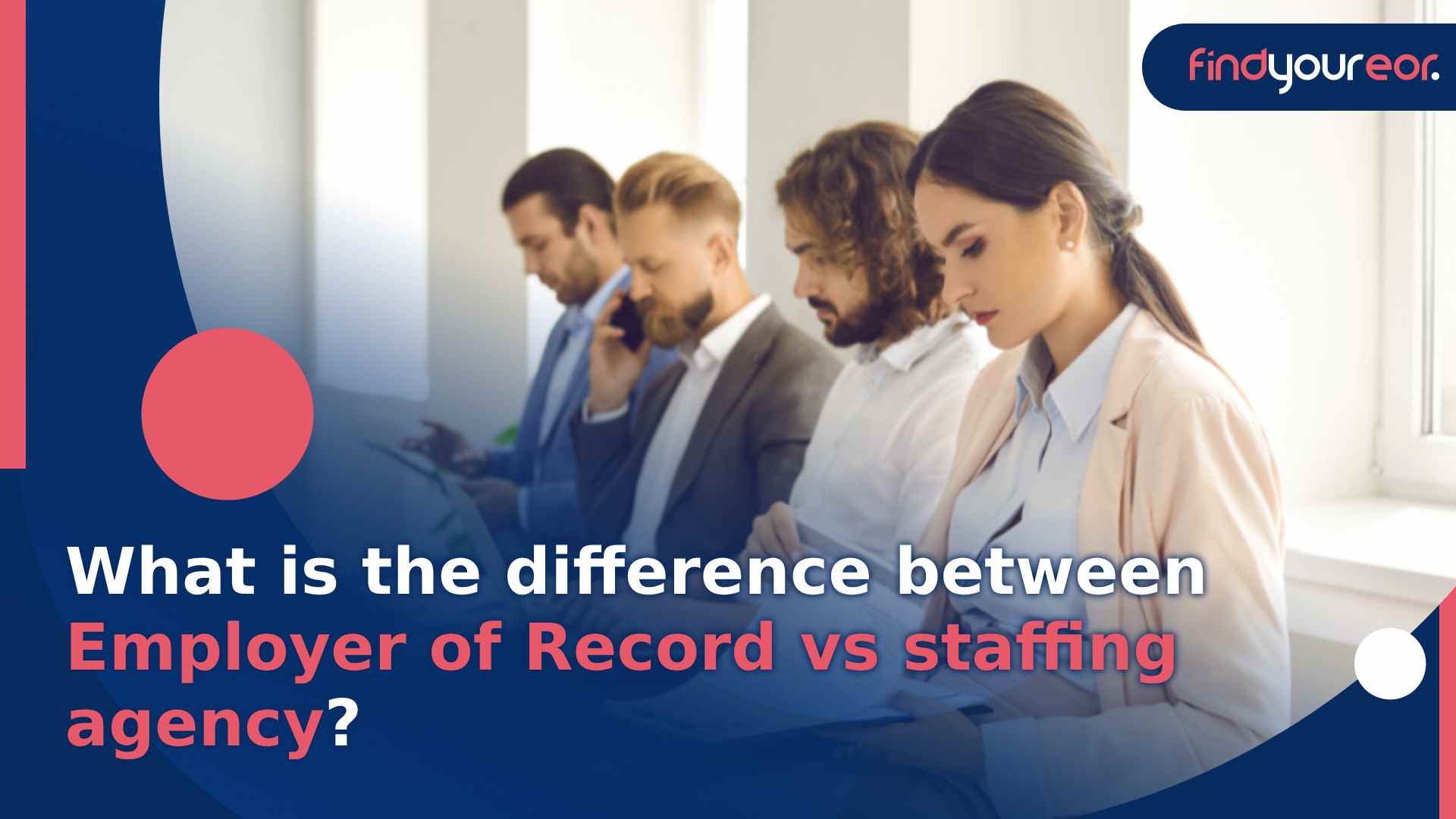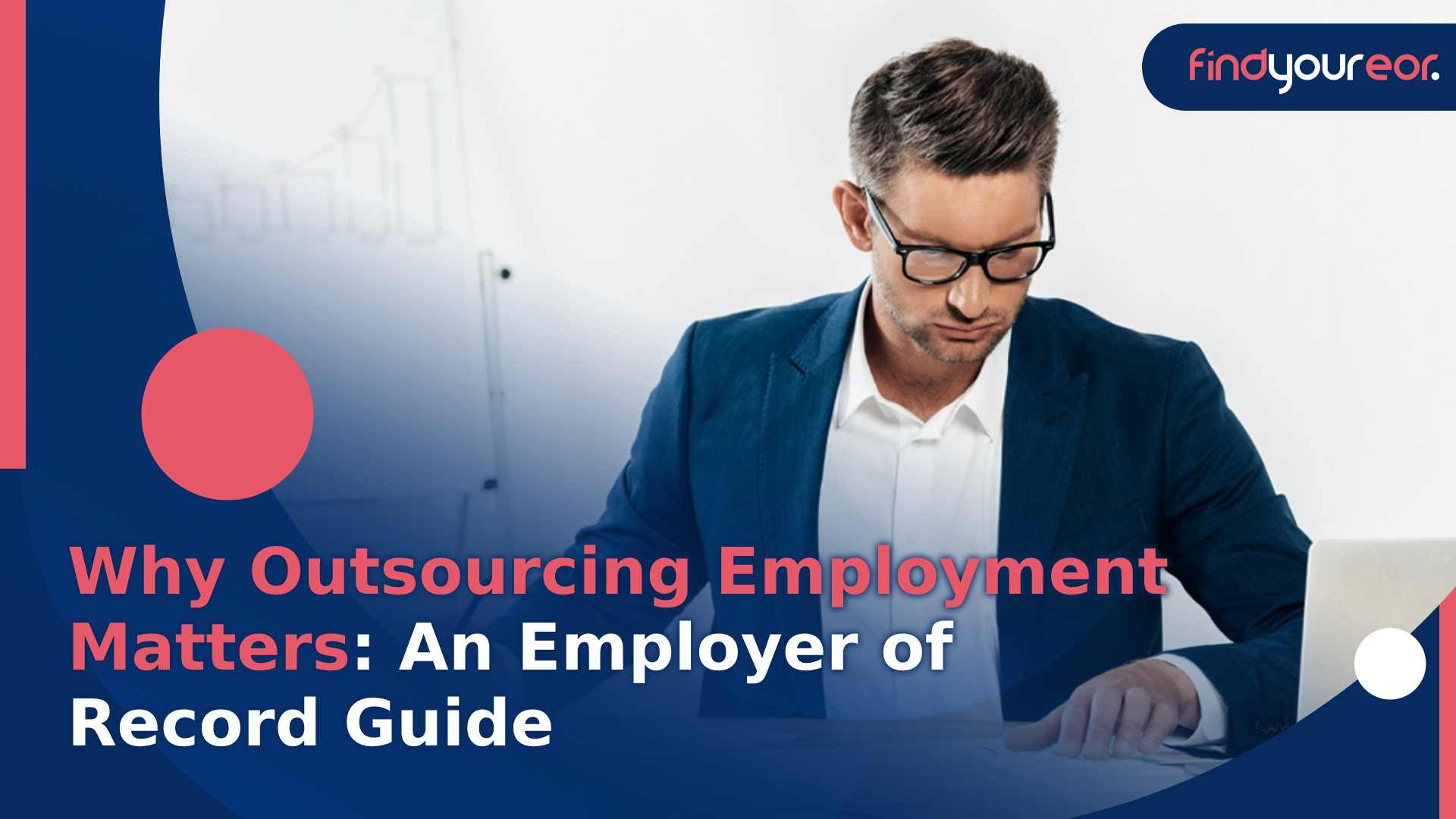Employer of Record Brazil: Why You Need It & How to Use It
Last update: May 16th 2024
Brazil is not only South America’s largest country but also a key player in the Latin American market and, as of 2024, the world’s eighth-largest economy. That means plenty of skilled local individuals eager to help you start your business, but hiring Brazilian specialists involves navigating unfamiliar local employment laws and compensating for a relatively high cost of living.
Employer of record Brazil services can quickly help you find the workforce and professionals you need by taking on employment responsibilities, employee benefits, taxes, adherence to local regulations, and company compliance. With an employer of record handling your staffing, you can focus on greater company goals and day-to-day operations.
With a Brazil employer of record service, you can quickly and efficiently access the talent of a top-ten economy and one of the largest startup regions in the world without spending time acclimating to Brazilian business culture.
What is an Employer of Record in Brazil?
An Employer of Record (EOR) in Brazil is a strategic solution for companies seeking to expand their presence without the hassle of establishing a legal entity. Essentially, an EOR acts as the official employer for the company's Brazilian workforce, managing all HR-related tasks such as payroll, tax compliance, and benefits administration. This partnership allows companies to navigate the intricacies of Brazilian labor laws seamlessly, freeing them to focus on their core business activities. With an EOR, businesses can enjoy flexibility, scalability, and peace of mind, ensuring smooth operations and successful expansion in Brazil.
How to Hire an Employer of Record Brazil
An employer of record can help your company hire employees and build a reliable network of professionals in Brazil so you can focus on your business's higher functions, but some steps are necessary to complete this process.
Understand What Your Company Needs
Before beginning your search for an Employer of Record (EOR) in Brazil, assess your company's specific requirements and objectives. Consider factors such as your expansion plans, the number of employees you intend to hire, and your budget constraints. Understanding your needs will help you choose the most suitable EOR for your company.
Meet with Potential Employer of Record Providers
Select the providers you feel best fit your company and contact them for meetings to discuss the details of any future collaboration or contracts. Make sure to use the face-to-face meeting to ask questions about the providers' existing experience and how they run their operations. This should help you understand what the providers can offer and how compatible they are with your business.
- Do they have a local entity in Brazil?
- How do they conduct their onboarding, and how would that include your company parameters?
- How do they calculate labor burden to present accurate estimates?
- How do they conduct and report on their compliance processes?
- What security and IP protection measures do they have in place?
Read Reviews and Contracts Carefully
Reading reviews and feedback for EOR services online is a must before your meeting. It’s important to see how your selected provider has performed throughout history, and the meeting will not show the entire story. Unbiased online reviews can give you an opportunity to see where potential weaknesses are and give you the opportunity to address them during the meeting.
Once you're satisfied with what an EOR service can offer, make sure to study the contracts in detail or hire a legal consultant to examine it. You should fully understand what the service is offering and what their obligations are to you. You should also have a clear understanding of your obligation to the EOR and what provisions exist should any part of the employment agreement fall through.
Collaborate Closely with Your EOR Brazil Provider
After signing a contract, make sure to spend the first months of your professional relationship working closely with your EOR Brazil provider. Ask questions related to the local requirements and employment regulations surrounding hiring and onboarding, and make sure you understand what your company is obligated to do in these processes. Open communication and making your international team feel welcome are key to forming a quality team in Brazil.
Good EORs can provide this information while still going through an onboarding process. Knowing how they operate will prevent misunderstandings or hiring the wrong people.
What Are the Benefits of Using an Employer of Record in Brazil?
If forming an international team is essential for your company’s operation, then hiring an EOR is strongly recommended. Labor regulations, tax codes, cultural norms, minimum wage requirements, and navigating collective bargaining agreements vary widely across different regions. EOR services ensure compliance with Brazil-specific procedures, including those related to collective bargaining agreements, making starting a team a matter of cost rather than local knowledge and can save you time that is likely more valuable.
Compliance Assurance
From tax codes to Brazilian employment laws to immigration procedures, an EOR Brazil service should already know exactly what to expect when hiring a team of professionals in the country. Brazil has labor regulations and employment requirements that likely differ from what your company is familiar with and hiring an employer of record service is the best way to avoid potential complications that could impact your operations or checkbook.
Efficient Onboarding Process
Companies established in Brazil have all the paperwork they need to hire employees in the country, but if you’re hiring internationally, you’re likely lacking these components. An EOR service based in Brazil solves multiple problems, including providing a smooth onboarding process to reduce delays and disruptions to your operations. They can get a local team up and running significantly faster than you could on your own while still handling your company's day-to-day operations.
Flexibility and Scalability
Trying to start a branch of your company in another country requires a significant amount of work that an EOR service can do easily and efficiently. Should you choose to scale your operation or make changes to your existing international team, an EOR service can make this process effortless.
Risk Mitigation
Building a team in a country with local laws, regulations, and expectations for employment has inherent risks that could lead to litigation, legal fees, and reputational damage. Hiring an EOR Brazil service puts a middleman between your company and your obligations to an international team, ensuring your operation is run legitimately and safely to avoid potential legal issues. They’ll be able to handle compliance issues, regulatory shifts, employment disputes, and any other unfamiliar issues that may arise.
Local Expertise and Support
Local expertise is invaluable when forming a team in Brazil. A good EOR service will have intimate knowledge about how a company should operate in the country, what local professionals expect from their legal employer, Brazilian customs and culture, and how to maximize efficiency and productivity. They can provide tailored solutions and strategies to optimize operations, avoid cultural misunderstandings, and foster long-term success.
What to Know About Hiring in Brazil
Several factors must be considered when hiring a new team in Brazil. While your EOR Brazil provider should understand these factors, knowing what to expect will give you an advantage and save time as they onboard your new team. It's crucial to understand the notice period requirements as per local laws to ensure compliance and smooth transitions. Employers often offer private health insurance as an additional benefit to access higher-quality healthcare facilities, addressing the need for better healthcare options beyond the public system. Additionally, in cases of termination without cause, the labor court plays a vital role in resolving disputes between employers and employees, serving as a legal avenue for such employment disputes.
Understanding Brazilian Work Culture and Customs
In Brazil, punctuality may not hold the same importance as in many Western countries. Employees might arrive late to work or meetings. Additionally, business relationships are often built on personal connections, with emphasis on friendliness and individual rapport. Portuguese is the primary language, and the Brazilian Real is the only accepted currency.
Employment Contracts in Brazil
When establishing employment contracts in Brazil, adhering to local regulations and practices is essential. Contracts should clearly outline the terms of employment, including job responsibilities, compensation, and duration. Unlike some countries where employment contracts can be at-will, Brazilian law favors more stability for employees, often requiring a fixed-term contract with specific conditions for termination. It's advisable to consult legal experts or HR professionals familiar with Brazilian labor laws to ensure compliance and mitigate risks.
Employee Benefits and Rights in Brazil
Brazilian employees are entitled to various benefits and rights aimed at safeguarding their well-being. Alongside competitive salaries, employees often receive additional perks such as meal vouchers, transportation allowances, and health insurance coverage. Moreover, Brazilian labor laws stipulate generous vacation time, typically 30 days per year, and maternity leave benefits, which provide paid leave for up to 120 days. Employers must also contribute to social security, ensuring employees receive financial support in case of unemployment or illness. Understanding and adhering to these benefits and rights are crucial for fostering a positive work environment and complying with local regulations.
Salary Expectations and Requirements
The minimum wage in Brazil is currently BRL 1,412 ($282) per month, though the states of Paraná, Rio Grande do Sul, Santa Catarina, São Paulo, and Rio de Janeiro set their own minimum wages, which are typically higher. Brazilian employees are often entitled to a bonus salary equivalent to an extra month, paid at the end of the year.
Work Hours and Vacation Time
Full-time work is typically limited to 40 hours a week during the weekdays but can go as high as 44 hours per week if working on Saturday is required. Hours after 44 must be paid at a 50 percent overtime rate or 100 percent if working on Brazilian holidays. Employees are entitled to 30 days of paid vacation per year, and maternity leave starts at 120 days of paid leave. Employers that pay for PTO may be entitled to reimbursement from the government.
Social Security and Sick Leave
Employees and employers must contribute to social security, which has rates ranging from 8 to 14 percent. Severance indemnity is required, and employers must contribute 8 percent of an employee’s monthly compensation. This serves as unemployment or illness insurance.
Payroll Management in Brazil
You must establish a legal entity in Brazil to establish a payroll for your Brazilian team. This further highlights the importance and convenience of using an EOR Brazil service instead of trying to build an office yourself.
The Brazilian Internal Revenue Service requires that a company or organization doing business in Brazil have a tax ID, an INSS account from a social security authority, and registration on the Brazilian eSocial system. The eSocial system is how your company and employees transmit tax and social security documents to the Brazilian government.
In most cases, a local bank account is required to pay your employees.
Income Tax Rates in Brazil
Income tax in Brazil ranges from 7.5 to 27.5 percent and is rated progressively, meaning any wage of BRL22,848 ($4,448) or lower is not subject to taxes.
- Annual wages of below BRL22,848 are not subject to taxes
- Wages up to BRL33,920 are taxed at 7.5 percent
- Wages up to BRL45,012 are taxed at 15 percent
- Wages up to BRL55,976 are taxed at 22.5 percent
- Wages over BRL55,976 are taxed at 27.5 percent
Residents are taxed on income from anywhere in the world, while non-residents are only subject to taxes on income from Brazilian sources.
Tax Deductions in Brazil
Employees have the option to choose a standard deduction rate of 20% of their annual income instead of counting individual deductions. Non-residents are taxed at a flat 25 percent rate. Taxable income includes wages, bonuses, allowances, business profits, premiums, and any other payment connected with employment. Deductions and exemptions are available, including:
- Social security contributions
- Stipends for food, transportation, and uniforms
- Private pension plan contributions
- Dependants like children or relatives
- Expenses related to education
- Expenses related to medical treatments
- Donations or investment expenses
Consequences of Failed Labor Obligations in Brazil
Another reason to employ EOR Brazil services is that the penalties for failing to uphold labor obligations can result in fines or other punishments. Brazil recognizes both employees and independent contractors, and misclassifying them can result in government fines and the obligation to pay back wages, back taxes, missing benefits, legal costs, administrative costs, and more. Labor claims are common in Brazil, so adherence to Brazilian labor law is strongly advised.
Anti-Discrimination Laws in Brazil
Brazil has strong anti-discrimination laws. If an employer is found to be discriminating on the basis of gender, race, ethnicity, criminal history, or medical conditions, including pregnancy, fines and punishments can result. Of particular note is hiring employees with a criminal background, as most countries allow for background checks on potential hires. In Brazil, background checks are considered discriminatory. The only time these discriminatory practices are considered justifiable is in professions that require certain physical abilities, jobs that require the handling of money or controlled substances, or jobs taking care of the infirm or elderly.
Unions in Brazil
Brazil has strong unions, and discrimination based on union membership is prohibited. A collective bargaining agreement typically occurs every two years. Until recently, union membership was required in Brazil, meaning many potential hires are likely still members.
Failing to Offer Employee Benefits in Brazil
Employees in Brazil are entitled to several benefits.
- Social Security and pension
- Severance and overtime pay
- Paid vacation time, bonuses, and sick leave
- Bereavement, marriage, maternity, and paternity leave
- Time off for voluntary blood donations, voting registration, military service, university-related tasks, and court obligations
- Time off for national holidays
- Christmas bonuses (13th month salary)
They are also entitled to more benefits depending on the type, size, and work conditions of a job.
- Transportation compensation
- Daycare and child assistance
Failing to meet these requirements can result in government fines and legal action by the union.
Further obligations exist and must be observed as an employer of Brazilian professionals.
Choose EOR Worldwide for EOR Brazil Services
There is a wealth of attractive professional workforces in Brazil just waiting to join your company. The world is increasingly globalized, and the technology necessary for working with an international team has never been more holistic and reliable.
Still, working with professionals in a different country requires understanding their local customs, culture, laws, and obligations. Learning and accommodating these rules is time-consuming and, thanks to EOR Brazil services, unnecessary.
EOR services are growing as the hunt for a talented workforce takes employers abroad. They grow in quality and ability every day, and EOR Worldwide makes it easy to find the ideal EOR provider in Brazil. Get started today and experience the benefits of partnering with a global leader in EOR services.













